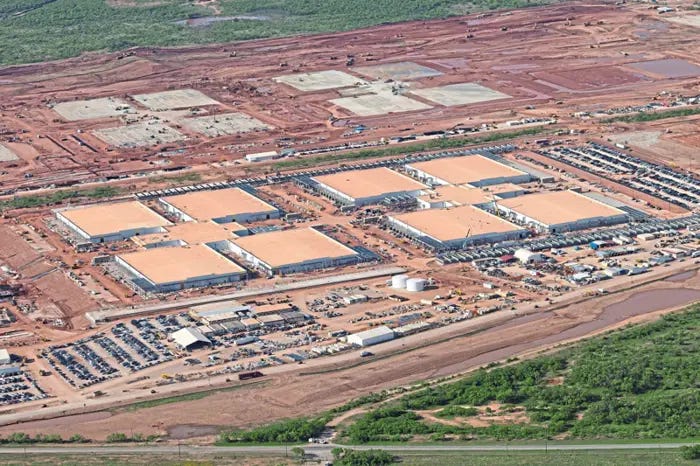Remember: Data centers don't create jobs
And yet the narrative around data center economic development persists
I try not to go too insane reading articles like this, but sometimes it’s hard: A Texas-based news service called Spectrum 1 wrote a piece asking how data centers, of which there are around 1 billion in Texas, will impact nearby local businesses. To answer this question, they interviewed Dean Stansel, a professor and former Cato Institute economist, who told the Spectrum 1 reporter this:
“The new economic activity that these data centers produce creates a higher demand for the goods and services that help to support these data centers and their employees.”
It’s certainly true that data centers increase demand for things — specifically, for a community’s energy and water. The nationwide groundswell of opposition to data centers (and the Big Tech firms behind them) has come from citizens in those towns and neighborhoods fighting to stop data center operators from guzzling crucial water and drastically raising their electric bills. Electricity prices have gone up nationwide, including in Texas, and particularly so in communities neighboring major data center developments.
But: What employees? One thing data centers objectively do not create is long-term, full time jobs — at least not the number of jobs data center supporters tend to tout. President Trump had said that OpenAI’s Stargate initiative, including its massive, 1 million square foot Stargate development in Abilene, Texas, would create 100,000 jobs. But despite a lot of talk about economic development tied to server farms, they employ just a fraction of the number of people who would work at a similarly-sized office park, factory, or retail space, the Wall Street Journal recently found. The $500 billion Stargate data center in Abilene will employ just 100 full-time workers once construction is completed.
This substack is ultimately about how corporate power impacts communities, and the impact of Big Tech-fueled data centers on communities is both clear and overwhelmingly negative. One of, if not the main selling point data center hawks use to promote these developments to communities are the jobs they’ll supposedly create. Hey, we all love jobs! But once these data centers are up and running, they just don’t need a bunch of people to operate them. So the towns where they’re located won’t need to open a bunch of new stores, restaurants and banks to serve them. The economic development of data centers is a myth.
The other person Spectrum 1 talked to for their article was not an economist, but an actual person with a job: Pablo Martinez, who owns Bajio Cantina and Bar in Garland, Texas. Martinez seemed to immediately understand what nearby data centers meant for his business. “I know a lot of companies are moving to Texas,” he told the reporter, “but we haven’t gotten that traffic yet.”




"It’s certainly true that data centers increase demand for things — specifically, for a community’s energy and water."
Hmm... monopsony case?
True. The lawyers themselves admit it! https://outlawedbyjp.substack.com/p/lawyers-for-data-centers-admit-they